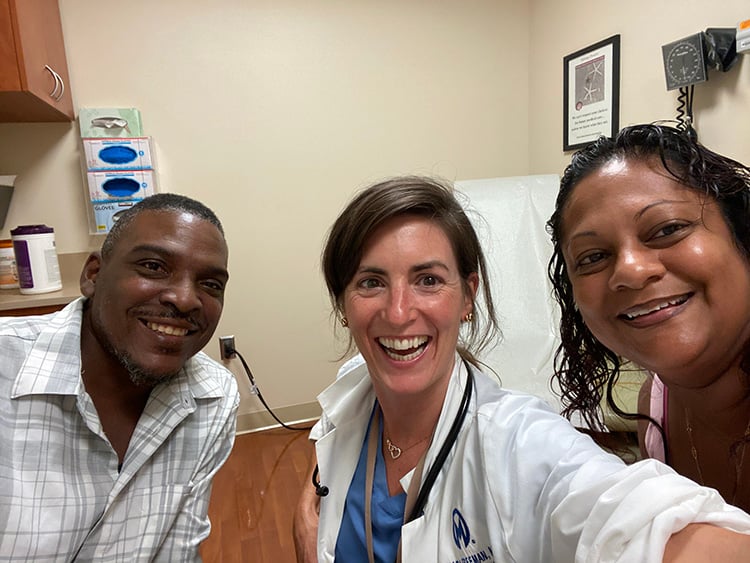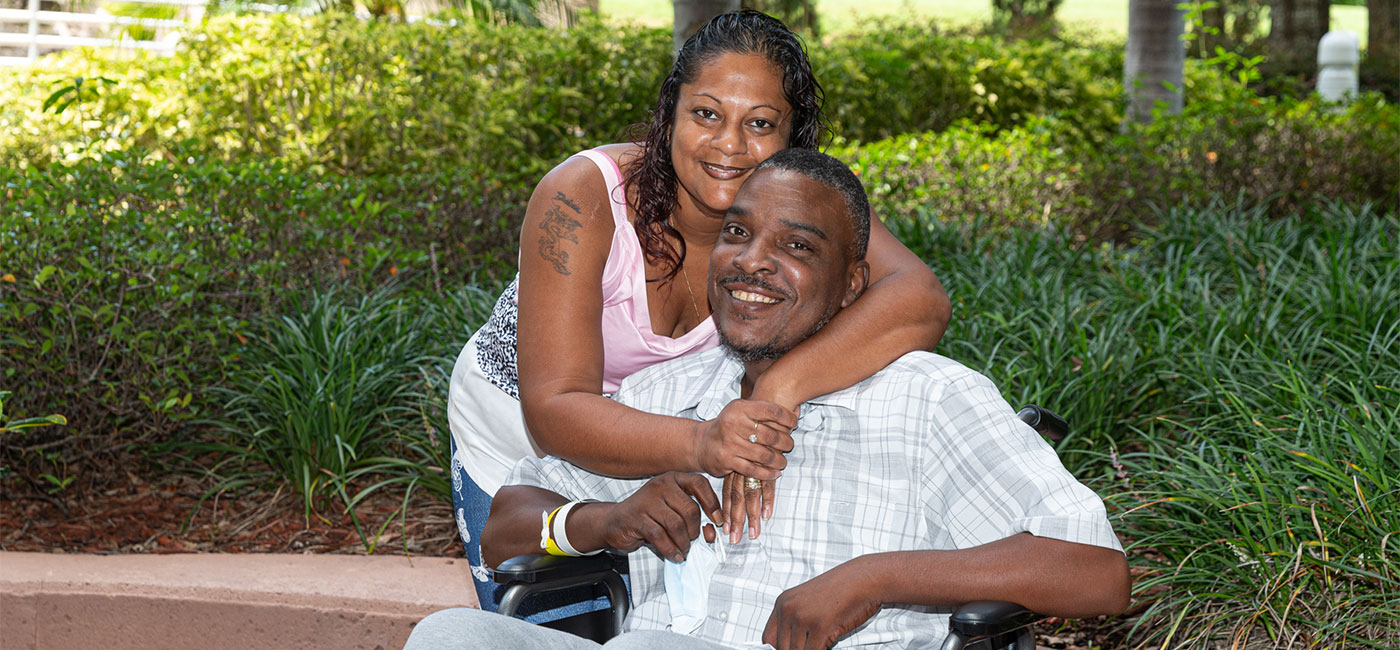Patient Marks Moffitt’s 1,000th CAR T Treatment
Larry Parker thought he was finally on the mend following a car accident in early 2022. But when the pain in his right hip wouldn’t subside, he was referred to an oncologist.
“That doctor gave me a nuclear medicine test and they found something abnormal,” said Parker, 41. “They did a marrow and blood biopsy and found multiple myeloma.”
After exhausting his medical resources near his home in Brevard County, Parker and his family called Moffitt Cancer Center. That’s where they met Dr. Brandon Blue, a hematologist in Moffitt’s Malignant Hematology Program.
“When I first talked to Dr. Blue, he said they had this thing called CAR T and he told me all about it,” Parker said. “He told me it had been successful, and I said, ‘OK, sign me up. I’m ready for it.’”
That decision not only saved Parker’s life, who is currently not showing any signs of cancer, but his case also marked Moffitt’s 1,000th CAR T treatment.
CAR T, or chimeric antigen receptor therapy, had been used to treat other forms of blood cancers but was approved for multiple myeloma in February 2022. The therapy reengineers a patient’s own immune cells to fight cancer.
“This CAR T-cell therapy was recently approved for multiple myeloma and is already showing great promise,” Blue said. “Multiple myeloma isn’t as common as breast, colon, lung or prostate cancers, so it doesn’t typically get discussed on television and in the media as much. Education is always the first step and that is always my advice to my patients.”

For this treatment, the patient’s T cells are removed and modified with additional receptors to help identify, attack and ultimately destroy the cancer cells. The reengineered T cells are then infused back into the patient’s body in a single treatment, enabling the body’s immune system to better combat the disease.
While Parker’s treatment certainly marked a milestone, it means much more than that, according to Dr. Ciara Freeman, a medical oncologist in Moffitt’s Blood and Marrow Transplant and Cellular Immunotherapy Program. She was also very involved in Parker’s treatment.
“Treating over 1,000 patients with CART isn’t just about advanced medicine,” she said. “It’s about fostering hope, pushing boundaries, and redefining possibilities for a brighter future.”
She said Parker’s story is an example of how CAR T therapy for myeloma patients is more than just a treatment.
“It’s a beacon of hope, turning once dim prospects into stories of triumph and resilience,” she said.

From left, Larry Parker, Dr. Ciara Freeman and Chandra Parker take a selfie at a recent appointment at Moffitt.
Resilience has certainly been a part of Parker’s journey. He spent two weeks at Moffitt during his first visit. Then, after the CAR T procedure, he spent a month as an inpatient at Moffitt.
“I had a fever for three days and they nursed me back,” he said. “Then I stayed nearby so I could come back and forth to Moffitt to get shots and make sure the CAR T worked.”
On June 5, 2023, Parker was released and returned home.
Parker’s cancer journey is not yet over, however. Each month he returns to Moffitt to get scans and blood work to ensure the cancer is still in remission. He is also seeing other doctors outside of Moffitt to help rebuild his spine, which suffered damage from the multiple myeloma.
“When I first met him, his outlook was extremely poor, his disease was so aggressive that he was rendered unable to walk and even his breathing was severely compromised,” Freeman said. “The incredible team at Moffitt and our multidisciplinary approach took on every aspect of his disease. We ultimately assisted him through his battle with myeloma to not only be discharged, but even walk again.”
Despite the ongoing journey, Parker is confident he’s on the right path and said he hopes to reclaim his life as an active 41-year-old.
“I can tell the cancer is gone because I feel a whole lot better,” Parker said. “I don’t feel sluggish anymore and I’m in a much better mood now! I’ve been trying to walk and taking baby steps, but it puts an awful lot of pressure on my back and spine.”
Parker said he sees his care team at Moffitt as his friends now and part of him actually looks forward to his follow-up visits to the cancer center. He hopes others who are looking for care will find Moffitt like he did.
“When you learn you have cancer, you have to accept that and not give up,” he said. “You don’t give up because there’s a place that’s called Moffitt and they are on top of their game.”



